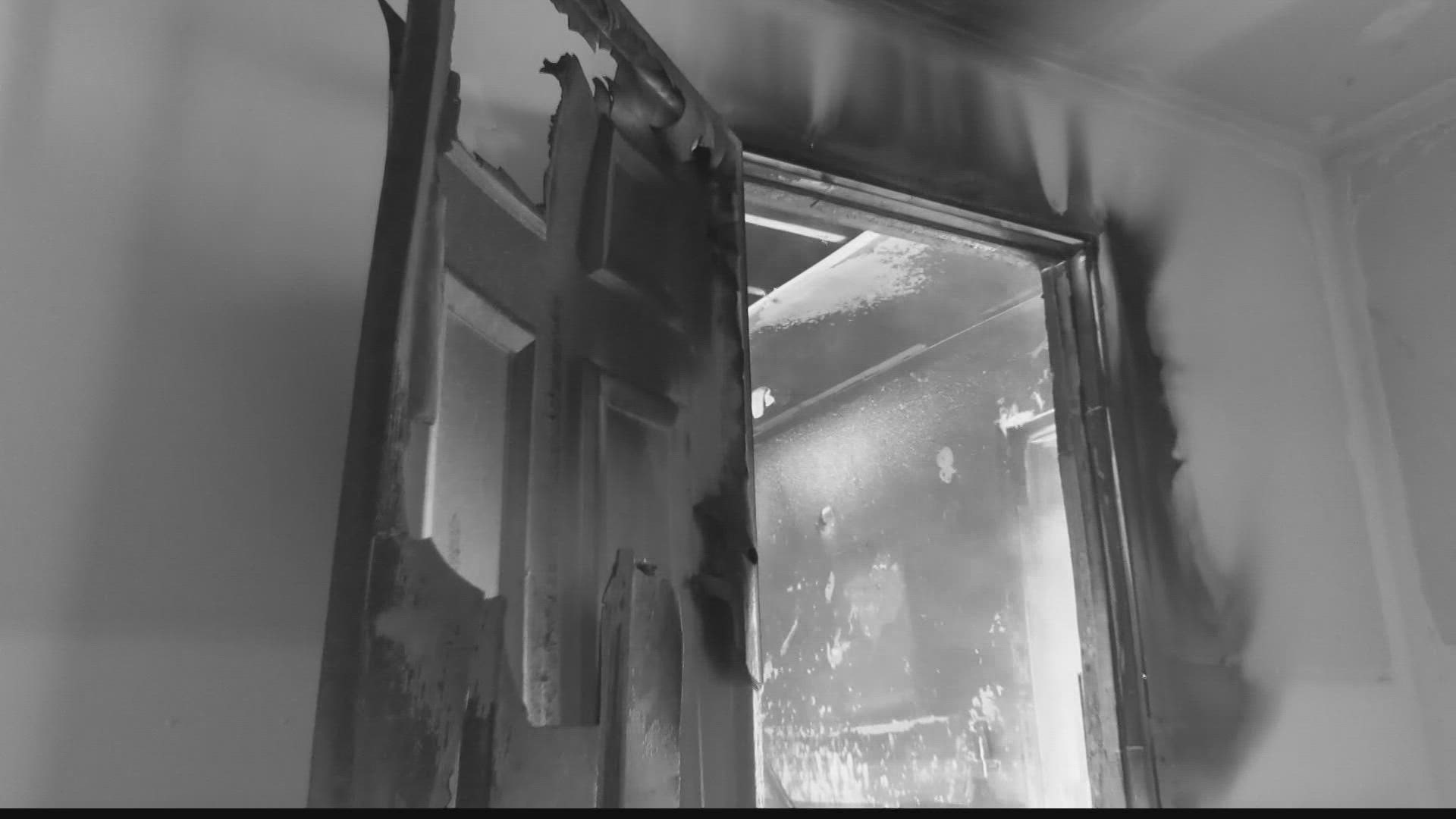HUNTSVILLE, Ala. — You're probably reading this on your laptop or cellphone, which means you're more than likely using a device that is powered by a lithium battery.
In fact, nearly every small electronic device that you use for entertainment or social reasons probably has a lithium battery powering it.
From your iPad to your kid's hoverboard, you can't escape these types of batteries.
And although these batteries are commonly found in homes and businesses, it is not necessarily common knowledge on how dangerous they can be if not disposed of properly.
Huntsville Fire and Rescue Deputy Chief Wesley Ogle states that "when you throw them in the trash can, you can throw liquids on top of them" and "if the casing is damaged, then you can have [a fire] happen in your home".
The City's Huntsville Fire and Rescue (HFR) and Solid Waste Disposal Authority (SWDA) have recently seen an increase in lithium battery-related fires in homes, businesses, and garbage/recycling trucks, as well as, disposal sites like Waste to Energy or Landfill.
That’s why HFR, the SWDA, and the Bureau of Alcohol, Tobacco, Firearms, and Explosives (ATF) National Center for Explosives Training and Research are all teaming up to educate the community about lithium battery safety.
HFR Chief Howard "Mac" McFarlen states that, "while lithium batteries are generally safe to use, they can pose hazards in our homes, workplaces and community if used improperly.”
And Chief McFarlen is not overestimating the potential danger of these batteries, as Ogle states, "if they do make it to the land field, then they can cause some serious problems" as he explains," they get buried out there and then we have [a] fire starting underneath all the trash," that can rapidly spread.
And not only are these batteries dangerous when it comes to fire hazards, but they are also environmentally damaging.
SWDA's Environmental Awareness Officer Jesse Davis says the "chemicals leaching out of them [will get] into our wastewater [and then] into our stormwater [and then] into our groundwater".
Prevent fires with these tips
To avoid injury, death, or environmental/property damage related to improper lithium battery use, follow these simple steps:
- Only charge lithium batteries on a hard, non-combustible surface. Charging on a bed, couch or another flammable surface can cause your device to overheat, resulting in injuries and fires.
- Stay safe by using chargers and cables approved by your device’s manufacturer.
- Always keep a close eye on your charging device in case of an unexpected fire.
- Never charge a lithium battery in extreme hot or cold temperatures.
- Don’t throw lithium batteries away in garbage cans or recycling carts. Doing so may cause fires in trucks or the disposal location.
- Recycle your old lithium batteries by visiting SWDA’s Household Hazardous Waste Facility on 1055 A Cleaner Way, Huntsville. Hours of operations are 7 a.m. to 5 p.m. Monday through Friday.
RELATED: Tornado Safety Tips
Proper lithium battery disposal
SWDA Executive Director Doc Holladay says the Household Hazardous Waste Facility’s Handle with Care Collection Center is available for free to all Huntsville, Madison, and Madison County residents.
To learn more about the Household Hazardous Waste Facility, please visit their website. Residents can also call 256-882-0155 during business hours for information or special assistance.

